While I was still living in England, I often went to Plymouth to visit friends. During one of those trips, I sent this press release to the local news media:
On Saturday, 14 May 1988, shoppers in central Plymouth will have an opportunity to kill living insects for free. They will also be able to talk to artist Rick Gibson who wants to know if people would like more opportunities to kill things.
Mr. Gibson will be pushing a baby pram which carries two signs and a box. One sign reads, “Free! Kill a Bug” and the other sign reads, “Kill it dead. For Free.” The box contains sixteen clear plastic cups, each containing a living insect. The box also contains an assortment of insect killing sprays and powders. Mr. Gibson will tell interested shoppers how to choose a cup with an insect, how to use the insecticide, and finally, how to watch the creature die.
This picture was attached to the news release:
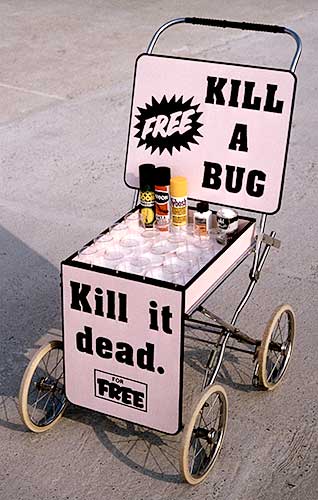
The next day, a Plymouth newspaper reported:
Plymouth City councillor Mrs. Betty Easton said: “It seems obnoxious to me. It is downright cruelty. These are living things – it is sick.”
A spokesman at the Royal Society for the Prevention of Cruelty to Animals said: “There is absolutely no justification for treating insects like this and turning it into a sideshow. There is also the danger from the insecticides – they are very powerful and could give off harmful fumes to shoppers.”
Despite these complaints, I continued with my plan because I knew that British animal cruelty laws did not protect insects. I was confident that my event was 100 percent legal.
So on the appointed day, I walked into Plymouth…
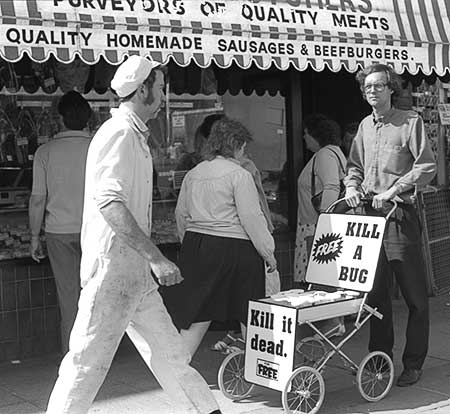
…and within minutes I was joined by an animal-rights activist named Louise Piddington.
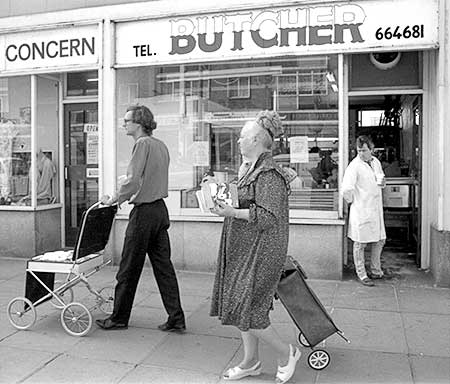
She had heard about my event and wanted to confront me.
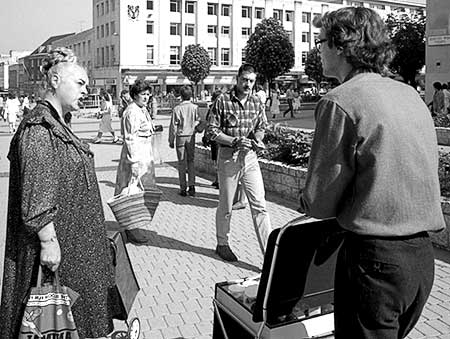
She berated me for being cruel. But I told her that I was doing nothing illegal and that it was up to the shoppers of Plymouth to decide what to do.
At which point a man walked up to us and said that he wanted to kill an insect.
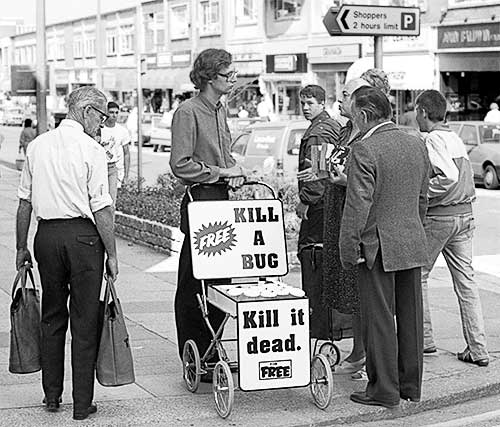
This outraged Ms. Piddington so much that she yelled for the police.
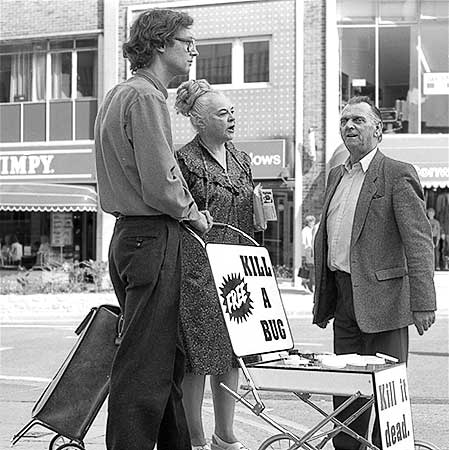
Her yell scared off the man but caught the attention of a nearby police officer who came running over to look at my display.
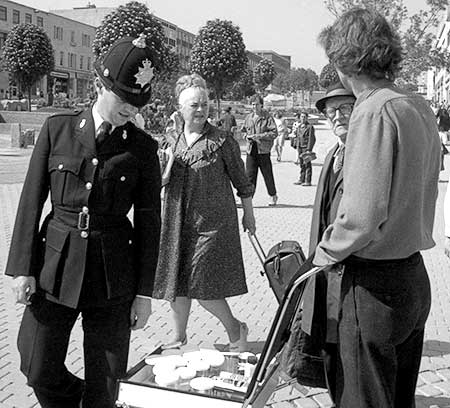
“What’s going on?” he asked.
I explained that I was doing market research to see if shoppers wanted more opportunities to kill creatures and watch them die. At the same time, Ms. Piddington protested that I was encouraging people to commit acts of animal cruelty.
After listening to both of our stories, the officer decided in favour of Ms. Piddington and told me to either leave Plymouth or he would arrest me for "disturbing the peace".
Since I was still confident that my behaviour was legal, I continued walking. At which point he arrested me.
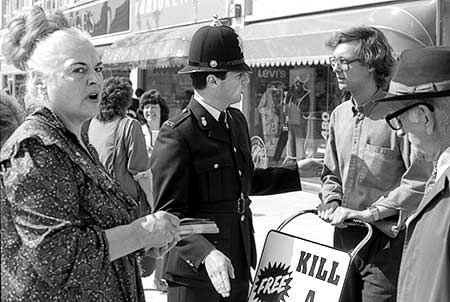
A police car soon arrived and an officer put my display in the car's boot.
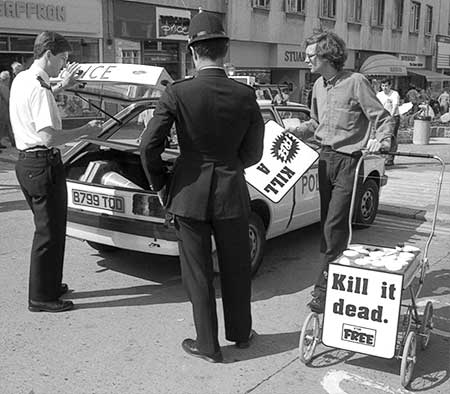
I was then put in the back seat of the car and driven to the central police station.
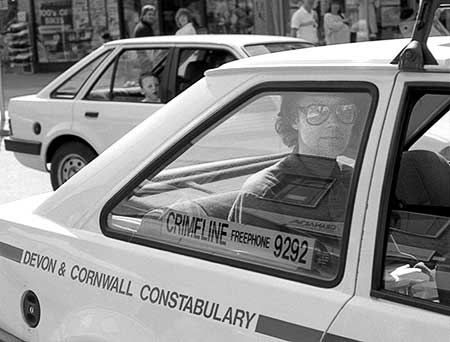
At the police station, I was put in a jail cell and served a nutritious lunch. After lunch, the police chief gave me a choice: either I could stop my event and go home or I could spend the night in jail and go to court the next morning.
Since I was satisfied with my research findings, I stopped the event, collected my display and went home.
The performance ended later that day when I put the sixteen healthy insects back into the buildings where I had found them.